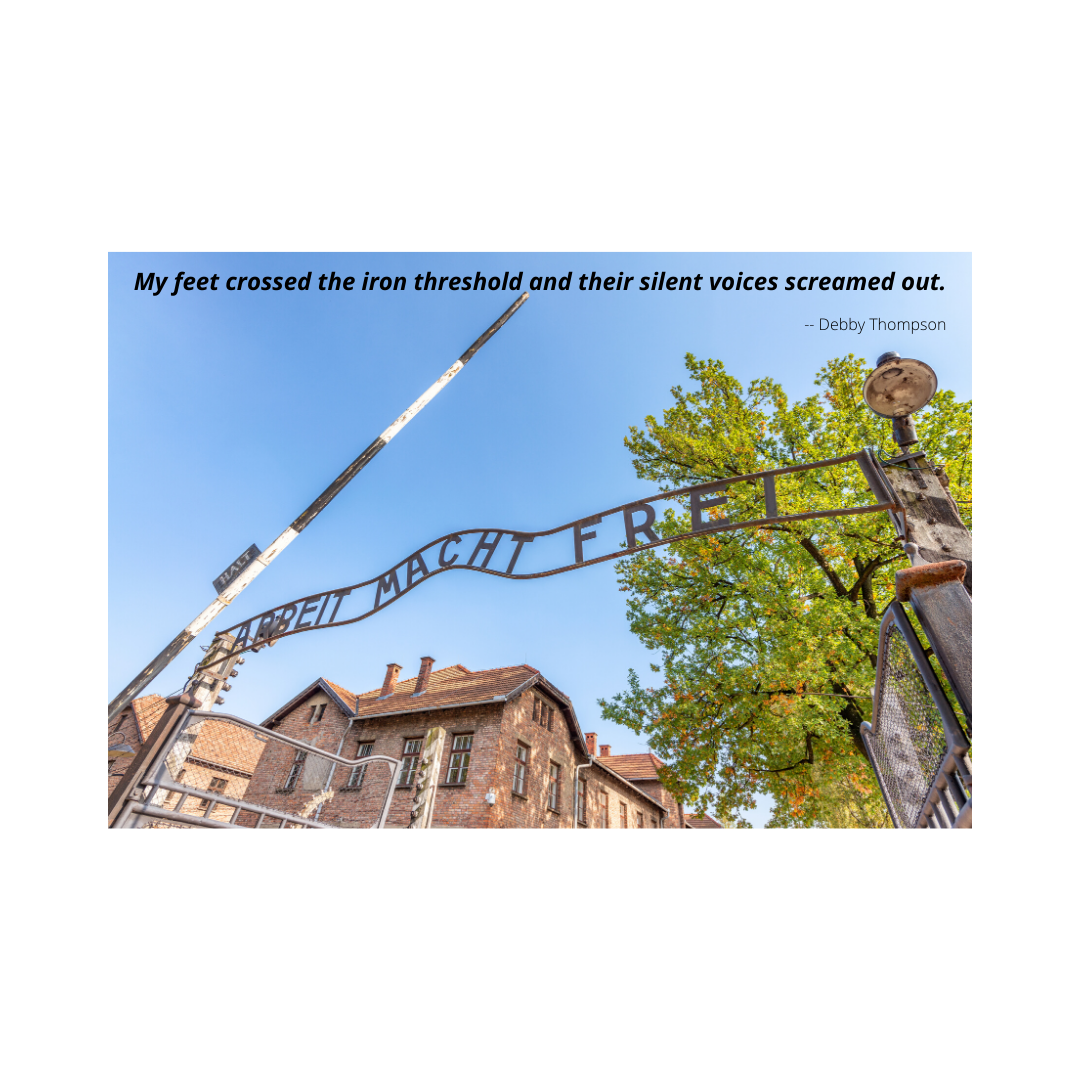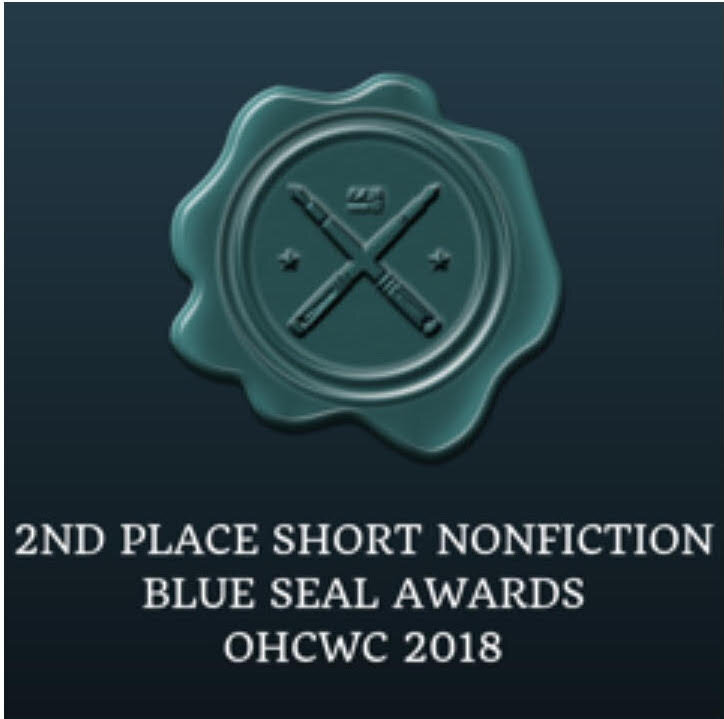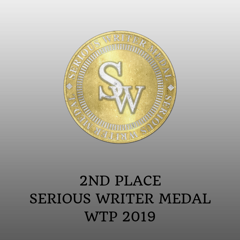Memories of touring the death camp at Auschwitz bring a surge of emotions. Involuntarily, my brain delivers the smell of creosote, even though I sit an ocean away. Without leaving a comfortable leather chair beside my warm fireplace, visual images transport me to that no man’s land and the largest single mass murder site in human history.
The thirty seven somber-mile-drive on the winding road from Kraków, did little to prepare one for the wretched experience. As we parked our vehicle and respectfully entered the open-air museum, a gripping pain overtook my senses. My feet crossed the iron threshold which mockingly declared Arbeit Macht Frei (Work Makes Free), and their silent voices screamed out. With every step, the increasing depth of human horror defied comprehension. Though I never knew them, I met them as I visited their place of death in the Silesian camp of Oświęcim (the Polish name for Auschwitz).
Still today, their history remains inscribed upon my heart.
How can I ever forget the heart wrenching reminders of their lives — their clothes, shoes, suitcases, kitchen utensils, eyeglasses, and dolls? Each article represented a human created in the Image of God. From cities like Warsaw, Łodz, Kraków, Katowice, Prague, Berlin, Bratislava, Breslau, and Vienna, mostly Jews, they came. Cattle cars brought men, women, and children, from Poland, Albania, Austria, Belgium, France, Germany, Greece, Hungary, Italy, Latvia, Lithuania, the Netherlands, Norway, Romania, Slovakia, Yugoslavia, and beyond. And 1.1 million never left.
Imagine a personal tour conducted by a survivor.
Most often, museum guides conducted tours for groups of various numbers, ages, and nationalities. But imagine a personal tour conducted by a survivor. In 1980, Larry and my father, a World War II veteran, walked the grounds of Auschwitz with Father Blachnicki, a hero in the eyes of the Polish nation, and a survivor of this death camp. Try and comprehend how they felt as he took them to view his cell of solitary confinement in the death block, Block 11. How did he survive? A clerical error led to his release.
In all of my years living in Poland, the magnitude of human agony suffered by so many remained incomprehensible. But this week, in memory of the 75th anniversary of the Liberation of Auschwitz, I offer tribute through these commemorations listed below; click the links should you wish to pay your respects. From far away — Auschwitz, Israel, and England — these words are sure to bring you close.
From Auschwitz: 200 survivors and delegates pay tribute on site
From the gates of death … (DW News)
From Israel: Visiting a Home for Holocaust Survivors
Today, we pause to remember … (International Christian Embassy Jerusalem)
From England: The Duchess of Cambridge
Duchess of Cambridge’s personal portraits of Holocaust survivors
The duchess said her subjects were "two of the most life-affirming people that I have had the privilege to meet". (BBC News)
And still more stories, these from the BBC.
[Note: My apologies for the unsolicited advertisements which intrude upon these videos.]









